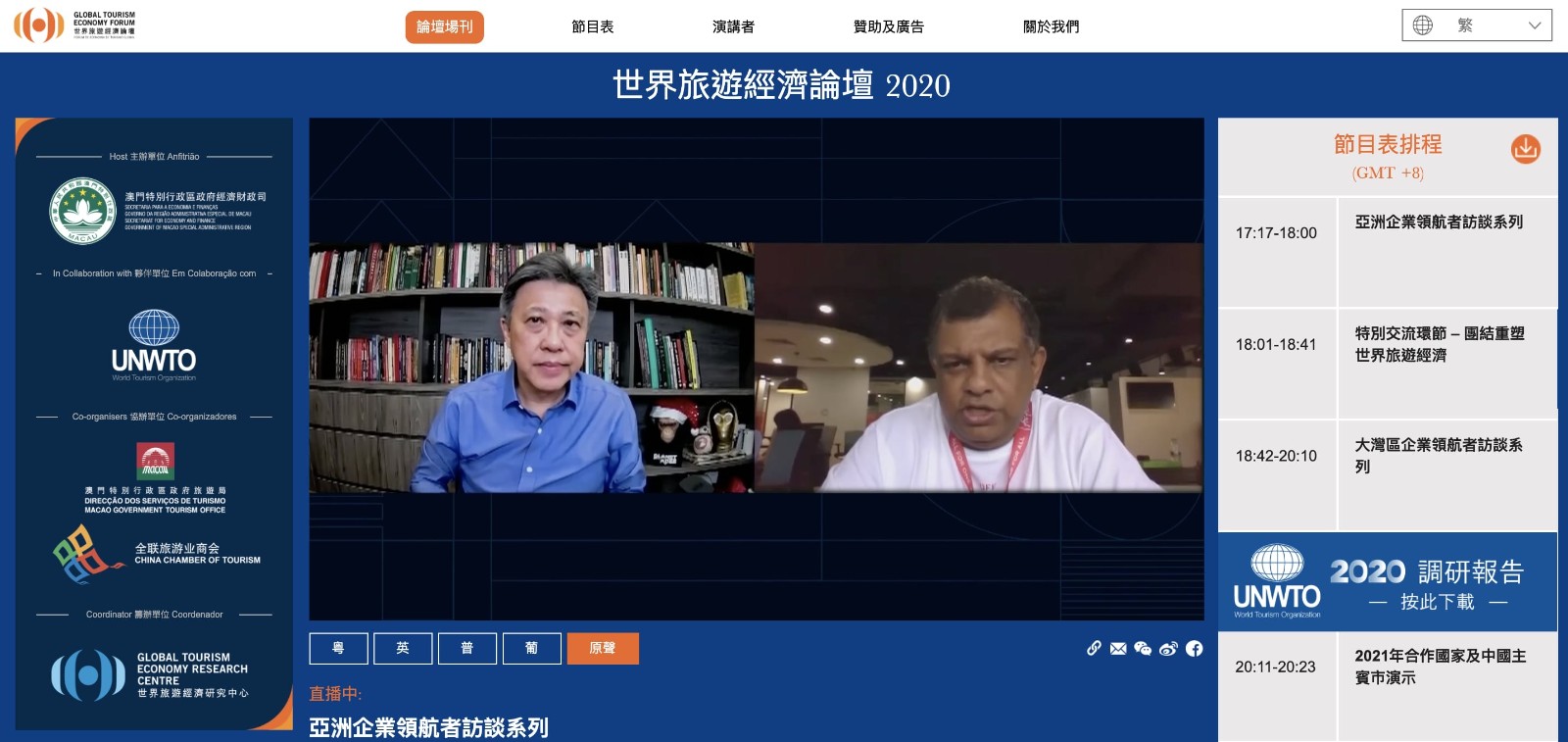2020-12-10
Wang Yuke

The pandemic-battered tourism industry is rising to the challenge, banking on innovative technologies to reinvigorate the sector. China has taken the lead in digitalizing the tourism industry and will continue exploring this path to recover its domestic and international tourism markets, said Chen Dong, secretary-general of the World Tourism Alliance, at the ninth Global Tourism Economy Forum, which was held mostly online on Wednesday because of COVID-19. “The focus we have been drawing is digitalization of the domestic tourism market, which has proved very effective in restarting and recovering the industry,” Chen said. He said many travel agencies across many Chinese provinces have adopted digitalized strategies to entice tourists to travel again while assuring them of the best health safety. For example, an appointment system has been established and broadly used at tourist attractions in China, and this has effectively limited the number of visitors. Smart check-ins and smart payments, which can dramatically reduce the risk of infection, are now standard at the country’s scenic spots. “All these technologies help to boost the satisfaction and friendliness of one’s travel experiences, as well as to maximize health safety,” Chen said. “We are working harder to elevate the digitalization to a more sophisticated level.” The incorporation of advanced technologies appears to be more relevant and imperative than ever, becoming a secret to revitalizing the tourism industry, the speakers said. “Today, technological innovations have helped us respond to the pandemic. With testing, tracing, and efficient communications to provide reliable information, COVID-19 will accelerate technology-driven changes in the travel sector,” said Pansy Ho, forum vice-chairman and secretary-general. Technology is essentially playing a pivotal role in the advancement of travel and tourism industry across the world, and the trend is gaining more momentum, said Mario Hardy, chief executive of Pacific Asia Travel Association. Digital payments are an important part of the story. For example, touchless hotel check-in and check-out systems, sanitization products, and services robots are now quintessential features of the hospitality industry, he said. Hardy said that one thing that businesses should keep in mind is that to dominate the landscape, they have to be agile, efficient, embrace technology, have a distributed workforce, and be competent in balancing physical and digital tactics in terms of providing services. “I think those are the areas that we also will be watching for virtual reality as a way to entice people to travel, to get them to dream to travel to destinations,” he said. The progressive recovery of Chinese domestic travel and revival of consumer confidence shows that China will be one of the first markets to see a resumption in international outbound travel, said Eduardo Santander, honorary vice-chairman of Global Tourism Economy and vice-executive director of the European Travel Commission. “It is now essential for European and national tourism organizations to relaunch close cooperation with our Chinese partners to ensure a speedy recovery,” he said. “Although the COVID-19 crisis has brought travel plans to a halt, we envisage launching a number of international campaigns next year. We’re engaged with the Chinese free independent traveler sector. We are also promoting campaigns with different Chinese channels and cooperation partners,” Santander said. Even though the situation is difficult in Europe right now, he was upbeat about seeing light at the end of the tunnel in the new year. Santander said, “We have put forward a new strategy, called Horizon 2022, that shifts from geographically based segmentation to passion-and experience-based promotional approach.” Aware that individualized and custom-made traveling has been gaining traction in the Chinese market over the past few years, the European Travel Commission also collaborated with learning Chinese internet service providers such as Tencent to boost the overall travel experience of Chinese visitors, through spurring innovation in tourism services for Chinese travelers and enabling product diversification of European destinations by sharing knowledge, experiences and best practices. Ho envisioned and anticipated that everyone in the world will be able to come out and meet up again in person soon. jenny@chinadailyhk.com